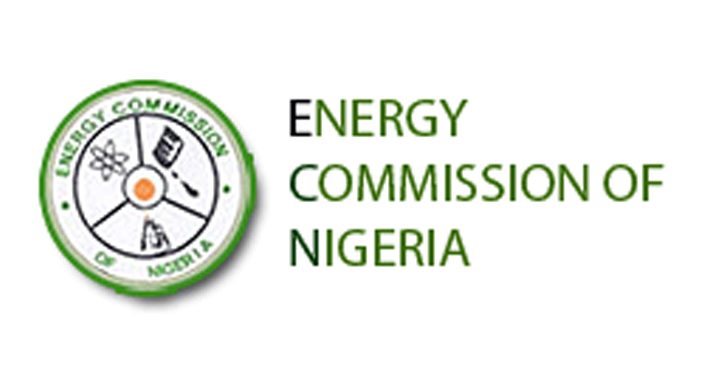The Energy Commission of Nigeria (ECN) has stated that Nigeria will need $410 billion to implement its Energy Transition Plan by 2060. Dr. Mustapha Abdullahi, Director-General of the ECN, made this known at the 7th Energy Transition Working Group (ETWG) meeting held in Foz do Iguacu, Brazil. Abdullahi highlighted that Nigeria is the first African nation to officially launch a detailed Energy Transition Plan, underscoring the country’s commitment to addressing critical challenges such as energy poverty, climate change, and universal access to affordable energy.
According to Abdullahi, Nigeria’s Energy Transition Plan is designed to provide solutions to energy poverty and climate change while ensuring the country achieves universal access to affordable energy by 2030 and net-zero emissions by 2060. “We need significantly more energy because energy access is essential to reducing poverty, preventing disease, and ensuring the supply of clean water for hygiene,” Abdullahi stated.
The ECN Director-General emphasized the importance of modern, affordable, reliable, and sustainable energy for economic growth, particularly in developing nations like Nigeria. He noted that access to energy plays a vital role in enhancing healthcare services, improving education, and boosting economic activities in both urban and rural areas. “Energy access is a fundamental driver of economic growth and development. Without it, the potential for growth, especially for MSMEs and local businesses, remains limited,” Abdullahi said.
He also stressed that transitioning to renewable energy is critical for achieving these goals. “One of the conclusions of the COP28 Summit held in Dubai in 2023 was the commitment of participating countries to transition away from fossil fuels to renewable energy sources, which will help achieve net-zero emissions by 2050 globally,” Abdullahi noted.
Nigeria’s Energy Transition Plan not only aims at environmental sustainability but also involves the domestication and localization of green energy. The country has set ambitious targets for the mining and processing of lithium for battery production, as well as establishing solar photovoltaic (PV) assembly plants. These initiatives are expected to help the country meet its energy needs while fostering industrial growth and innovation. “We have set a policy target to domesticate and localize green energy production, which includes the mining of lithium for battery production and the establishment of solar PV assembly plants,” Abdullahi said.
Despite the ambitious goals set by Nigeria’s Energy Transition Plan, financing remains a significant challenge. Dr. Abdullahi pointed out that adequate funding is crucial for a successful clean energy transition, yet financial resources are currently inaccessible to many developing nations, particularly in Africa. “Finance is key to the clean energy transition, but it is currently inaccessible to the developing nations that need it most, especially in Africa,” Abdullahi emphasized.
He noted that Africa is one of the most affected regions by climate change, and the current funding for climate-related projects on the continent is far from sufficient. According to Abdullahi, Africa needs about $53 billion annually between 2020 and 2035 to achieve its climate goals, as outlined in the continent’s nationally determined contributions. “Africa’s present funding for climate finance is inadequate. To achieve a just energy transition, each African country must plan its energy transition according to its specific needs and policies rather than adopting a one-size-fits-all approach,” Abdullahi said.
The ETWG meeting in Brazil, themed “Building a Just World and a Sustainable Planet,” brought together energy ministers, leaders, and experts from around the globe to discuss energy transition policies and strategies. Abdullahi, who leads the Nigerian delegation at the G20 ETWG, highlighted the importance of international cooperation in ensuring that developing nations like Nigeria receive the necessary support to achieve their energy transition goals.
He also mentioned the importance of digital and modern infrastructure, such as expanding high-speed internet and 5G networks, which can enhance MSME growth and participation in the global digital marketplace. He stated that Nigeria is actively working with international organizations, such as the World Trade Organization (WTO) and the World Bank, to improve digital connectivity and energy access. “We are working with the Joint WTO-World Bank Digital Trade for Africa (DTA) project to enhance digital connectivity infrastructure and promote digitalization across both the public and private sectors in Nigeria,” Abdullahi explained.
As Nigeria continues to push forward with its Energy Transition Plan, the government remains committed to aligning its efforts with other African nations and global partners. Abdullahi stressed that African countries must develop energy transition plans that are tailored to their specific energy needs, considering the continent’s unique challenges. He also called for more financial support and collaboration to ensure a just energy transition that benefits all regions.
The ECN is optimistic that with the right funding and strategic partnerships, Nigeria can meet its long-term energy and climate goals while fostering sustainable economic growth. The meeting in Brazil serves as a platform for nations like Nigeria to share their experiences, learn from global best practices, and seek solutions to the pressing challenges posed by climate change and energy shortages.
The ETWG meeting continues to be a vital gathering for discussing the policies and actions necessary to create a sustainable energy future for developing nations, ensuring they are not left behind in the global shift towards renewable energy sources.










